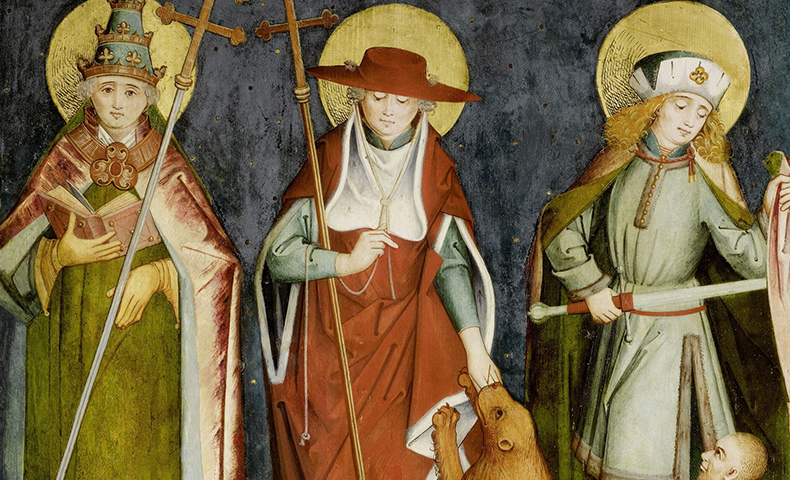San Girolamo, Saint of the day for 30 September
(345-420)
The story of San Girolamo
Most saints are remembered for some exceptional virtue or devotion they practiced, but Jerome is often remembered for his bad mood! It is true that he had a bad temper and could use a vitriolic pen, but his love for God and for his son Jesus Christ was extraordinarily intense; whoever taught error was the enemy of God and truth, and St. Jerome pursued him with his powerful and sometimes sarcastic pen.
He was primarily a scholar of Scripture, translating most of the Old Testament from Hebrew. Jerome also wrote commentaries that are a great source of Scriptural inspiration for us today. He was an avid student, a thorough scholar, a prodigious writer of letters, and an advisor to monks, bishops and pope. St. Augustine said of him: "What Jerome is ignorant of, no mortal has ever known".
St. Jerome is particularly important for having made a translation of the Bible which was called the Vulgate. It is not the most critical edition of the Bible, but its acceptance by the Church has been fortunate. As one modern scholar puts it, "No man before Jerome or among his contemporaries and very few men for many centuries after were so well qualified to do the job." The Council of Trent asked for a new and correct edition of the Vulgate and declared it the authentic text to be used in the Church.
In order to do such a job, Jerome prepared himself well. He was a teacher of Latin, Greek, Hebrew and Chaldean. He began his studies in his hometown Stridon in Dalmatia. After his preliminary training, he went to Rome, the center of learning at the time, and from there to Trier, Germany, where the scholar was very much in evidence. He has spent several years in each place, always trying to find the best teachers. He once served as Pope Damasus' private secretary.
After these preparatory studies, he traveled extensively in Palestine, marking every point in Christ's life with an outlet of devotion. Mystical as he was, he spent five years in the Chalcis desert to devote himself to prayer, penance and study. Eventually, he settled in Bethlehem, where he lived in the cave which was believed to be the birthplace of Christ. Jerome died in Bethlehem and the remains of his body now lie buried in the Basilica of Santa Maria Maggiore in Rome.
Reflection
Jerome was a strong and straightforward man. He had the virtues and unpleasant fruits of being a fearless critic and all the usual moral problems of a man. He was not, as some have said, an admirer of moderation both in virtue and against evil. He was ready for anger, but also ready to feel remorse, even more serious for his faults than for those of others. A pope is said to have observed, seeing an image of Jerome hitting his chest with a stone, "You are right to carry that stone, because without it the Church would never have canonized you"
